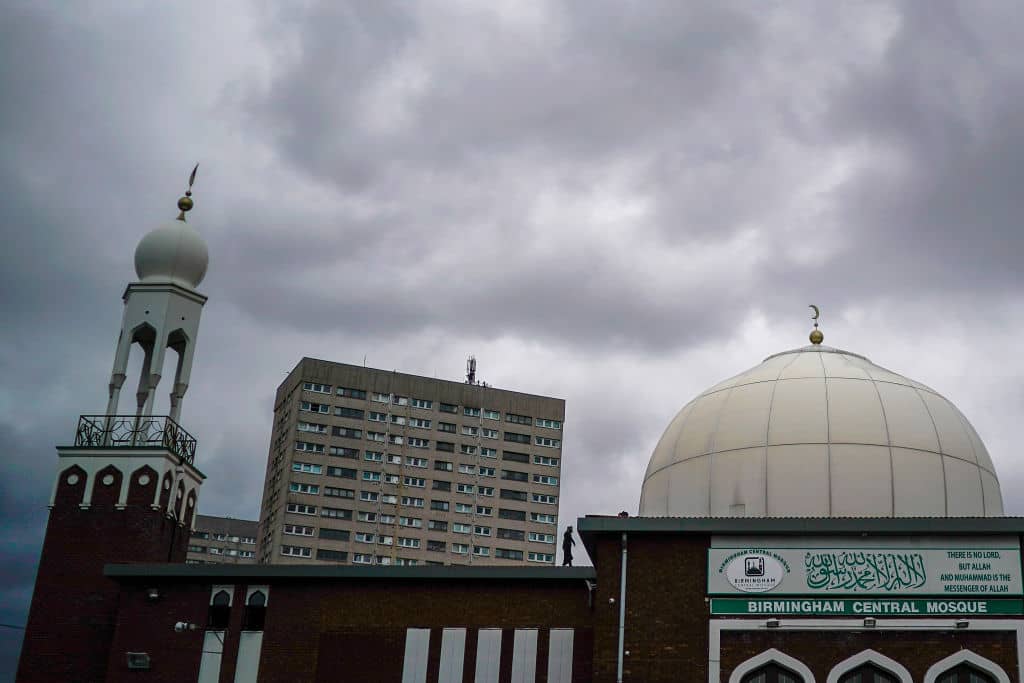The Taliban is now bedding in for its second regime in Afghanistan and desperate Afghans continue to flee what is likely to become a brutal, heavily armed theocracy. Meanwhile in the UK it has come as a shock to many that some British Muslims applaud the Taliban’s resurgence.
Speaking on BBC Radio 4’s Sunday programme, the Islamic sharia council member Khola Hasan claimed that ‘every single person that I know, as a Muslim’ was celebrating the return of the jihadist group and that ‘The problem is that we don’t give [the Taliban] a chance’, sparking outrage from more liberal minded British Muslims. ‘What an atrocious lie it is to say that “all British Muslims celebrate the resurgence of the Taliban”’ fumed Dr Taj Hargey, Imam of the Oxford Islamic Congregation in the Daily Mail. ‘Only religious militants and Sharia fanatics welcomed the Taliban’s assumption of power,’ he added.
How could Hasan – brought up with the rights and freedoms conferred by a western secular democracy – downplay the ascendance of a group that has flogged people for dancing or listening to music, deprived women of education and work, jailed them for fleeing forced marriages, publicly stoned adulterers, terrorised religious minorities and beheaded ‘collaborators’ with western forces?
The Taliban had ‘grown up’, argued Hasan. Last month the Taliban abducted the famous Afghan comedian Khasha Zwan, who had posted TikTok videos poking fun at the militant group. He was later found shot dead with his throat cut. Is this how the Taliban have ‘grown up’?
The Taliban is a Deobandi regime, a sect that has a long history in Britain
It is perhaps not surprising though that the Taliban has its cheerleaders in the UK. The Taliban is, after all, a Deobandi regime, a sect that has a long history in Britain.
The Deobandi is an anti-imperialist, socially conservative and religiously dogmatic movement that emerged in India in the 19th century which later sought to purify Islam from contamination by British colonialism. The sect, which spread throughout South Asia, urges followers to reject any compromise with western values, cut all contact with nonbelievers and to prepare for conflict to establish the global victory of Islam.
Saudi Arabia bankrolled a huge expansion of Deobandi mosques and madrassas in Pakistan in the 1980s to train the ‘mujahadeen’ fighters for holy war against the Soviets who had invaded Afghanistan in 1979.
When those former Mujahideen fighters came together as the Taliban with the aim of making Afghanistan an Islamic state, they were supported ‘to the hilt’ by the leadership of many British Deobandi mosques, as revealed by the Al Qaeda operative turned MI6 agent Aimen Dean. In a 2016 BBC Radio 4 documentary called The Deobandis, Dean alleged that ‘Even after 9/11 many mosques were stubborn in their support for the Taliban, because of Deobandi solidarity’.
The problem is not with the vast majority of Muslims in Britain. A Savanta Comres poll published in February 2020 on British Muslim attitudes to policing and extremism found, for example, that 63 per cent of Muslims are worried about Islamist extremism and a combined 74 per cent of British Muslims either supported or supported ‘with some concerns’ the Prevent counter-extremism programme. A 2016 survey of British Muslim communities by ICM for Policy Exchange also found that 74 per cent of respondents favoured banning tutoring that ‘promotes extreme views or is deemed incompatible with fundamental British values’ while 78 per cent backed government regulation to prevent ‘anyone deemed unsuitable from being able to tutor in madrassas.’
But the Deobandi sect is still a dominant force in British Islam which is why its solidarity with the Taliban is so concerning. The sect runs more than 40 per cent of mosques in the UK and trains most of our imams. The Deobandis also run at least 16 schools and seminaries called Darul Ulooms according to a 2004 study of British Islam.
In prisons, two thirds of Muslim chaplains follow the Deobandi denomination, according to a review commissioned by the Ministry of Justice, which noted ‘a lack of management control over access to extremist literature and materials.’
Officially, the Deobandi message now focuses on individual regeneration or inner ‘jihad’ and self-mastery. Its leaders, while eager to issue fatwas, are avowedly opposed to violence and terrorism, and its clerics are on a wide theological spectrum.
However the Deobandi seminaries in Pakistan produced the Taliban in Afghanistan, and other violent jihadist groups, including the Kashmiri Harkat Ul Mujahadeen (HuM) and Jaish-e-Mohammed. And in the UK, a significant number of convicted terrorists have had Deobandi connections. It was revealed on The Deobandis that in 1993 the Pakistani Deobandi cleric Masood Azhar, head of Harkat ul Mujahideen, had given 40 speeches in British Deobandi mosques and madrassas. A record of his tour translated from Urdu revealed that Azhar highlighted the verses of the Koran devoted to ‘killing for the sake of Allah’ and urged young British men to come and train for ‘jihad’ in Pakistan.
In the UK, the 2016 review of social cohesion by Dame Louise Casey found that there is still ‘nowhere near’ enough emphasis put on integration in the UK. Some communities are becoming more segregated, and Britain is facing ‘escalating division and tensions in society’, she concluded.
Prime Minister David Cameron was also concerned enough about the Deobandi doctrine to reportedly commission a secret report on Deobandi Islam, but it has not been published. Following the fall of Afghanistan, now would be a good time for the government to revisit and address its findings.
Aliyah Saleem, a former pupil of a Deobandi school said on The Deobandis that ‘Islamic schools perpetuate conservative ideas, partly because no one has told them not to.’ The question on all our minds is ‘Why not?’ and ‘If not now, when?’






Comments